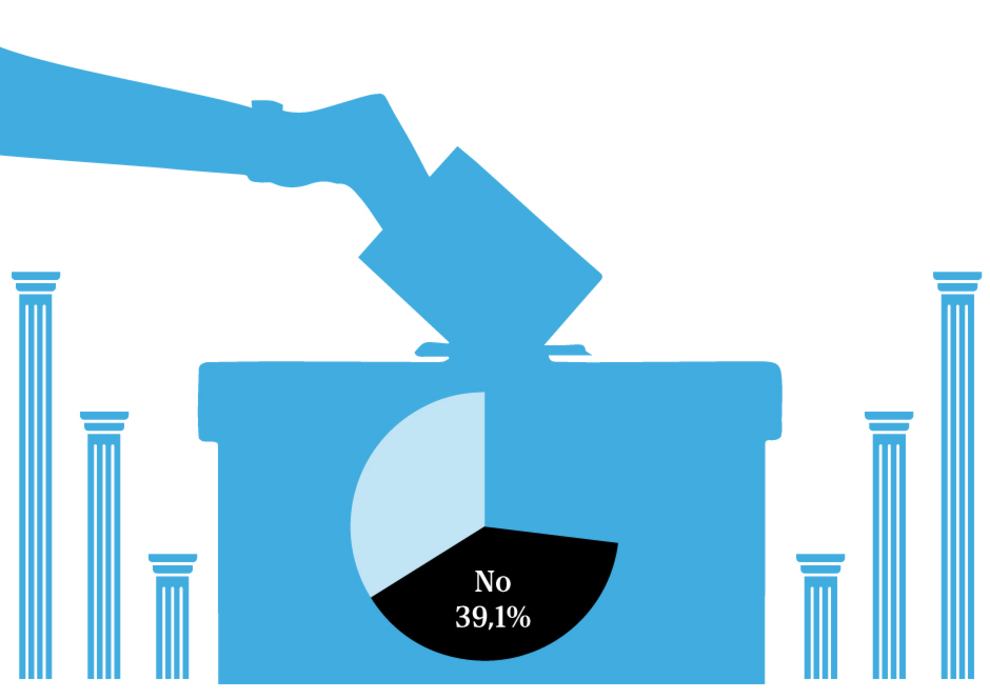Economy The Spanish deflate the optimism of the Government: the vast majority fear being poorer in 2023
Survey Sánchez's ministers hit rock bottom: Robles, Calviño, Díaz fall... and Marlaska is already last behind Montero
The leader of the PP, Alberto Núñez Feijóo, put on the table two weeks ago the proposal to let the most voted list govern in the next municipal elections.
Practically all the political forces rejected it and the PSOE, the main addressee of the offer, dismissed it as "chascarrillo".
The measure was among the most outstanding of the democratic quality plan that the popular present as part of their electoral program to the citizens.
Despite the general rejection
that it aroused among the rest of the parties -including some internal voices
they expressed their doubts
-, the citizens do not see it with bad eyes.
Quite the contrary, judging by the results that emerge from the survey of
sigma two
For the world.
sigma2_02_02_2023_28_29_politics
51.7% support the idea compared to 34.5% who reject it.
That the candidacy that collects the most votes at the polls govern has the support of 79% of the voters of the Popular Party;
with 67% of the voters of
citizens
and with 55% of those of
vox
.
And not only: a majority of PSOE voters also defend this proposal.
Specifically, 48% compared to 41.5% who reject it.
The electors of
United We Can
, the minority partner of the Government, called in a good number of places to be a necessary crutch for the Socialists, are the most reluctant to the idea.
In fact, unlike the voters of the rest of the parties, they are pronounced 61% against compared to only 28% who are in favor.
The institutional quality plan of the
popular
it contained 59 more measures.
A good number of them aimed at guaranteeing the independence of public bodies, for example, the
CIS
either
RTVE
, whose top officials would have to prove a minimum of five years totally removed from active politics, but also others aimed at strengthening the independence of the high courts and the prosecution and even measures to shore up the role of the Legislative without abusive interference by the Executive.
The plan, at first, is favorably received by those surveyed, to the point that 65% consider that the PSOE should take it into consideration, study it and, where appropriate, negotiate the most appropriate measures with the
popular
.
62% of socialist voters point to this position along with 92% of those of the PP, 93% of those of Ciudadanos and 74% of those of Vox.
On this occasion, even the majority of United Podemos voters agree, although with very little difference compared to those who say they are opposed: 43% compared to 41%.
More internal to the bloc of the right, the poll reveals that the majority of Partido Popular voters -50% compared to 32%- are in favor of the current deputy mayor of Madrid,
begona villacis
(Cs), form part of the PP lists in the municipal elections next May.
Curiously, a majority of voters from the formation also
orange
-45% against 34%- pleads for this inclusion in the candidacy of the
popular
.
Villacís has maintained in recent weeks
contacts with several leaders of the PP
in this sense but, at least for now, its incorporation has not prospered.
Ciudadanos has gone through a turbulent period in recent months that has resulted in the
designation of a new dome
amid harsh internal criticism and all this seasoned with terrible electoral prospects, especially at the national level.
Much of the party's hopes are centered on retaining representation in municipal elections.
Voters, including those who claim to have opted for the
oranges
in the last elections, they are very skeptical.
Only 13% believe that they will be able to maintain representation in the town halls, compared to 76% who believe that they will not.
Pessimism also reigns among his supporters: 18% believe that he will achieve representation, but a very large 80% think otherwise.
Everyone agrees: the Rabat collaboration leaves much to be desired
The help that Morocco provides in the issues that most concern Spain - the fight against illegal immigration and the fight against jihadism - is insufficient.
This is what the vast majority of Spaniards think: 72.4%.
Rabat's collaboration in these two areas leaves much to be desired for voters regardless of their ideological affinity.
Thus, 70.5% of those who claim to choose the socialist ballot are dissatisfied with the aid provided by the Mohamed VI regime to Spain.
The same is the opinion of 72.4% of the voters of United We Can.
The rejection increases in the case of the voters of the opposition bloc: 83% of the PP voters disagree with the level of aid from Rabat;
81% of those from Vox and 88% from Cs.
To continue reading for free
Sign inSign up for free
Or
subscribe to Premium
and you will have access to all the web content of El Mundo

